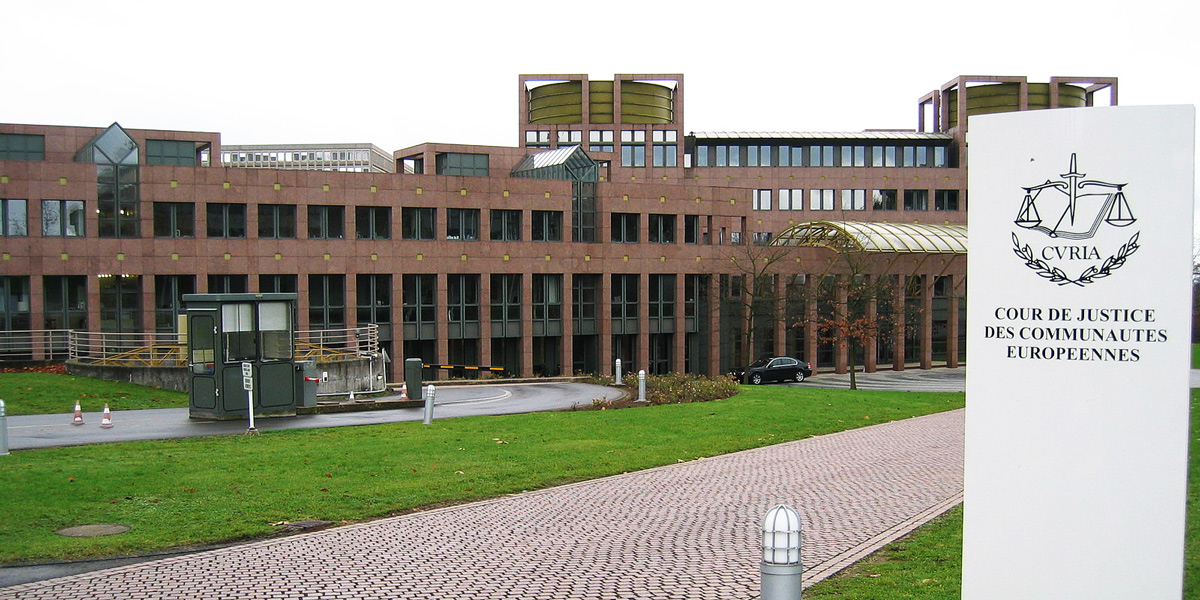
A roundup of NGO, industry, and media responses
The ruling of the European Court of Justice (ECJ) on 25 July to the effect that certain "new GM" techniques involving mutagenesis must be regulated under the GMO legislation prompted responses and analyses by various NGOs, as well as press reports.
Here's a compilation of some that have come our way.
Organic and non-GMO industry responses
The organic industry association IFOAM welcomed the ruling, stating, "This decision is fully in line with the position of the organic sector as it will ensure transparency for breeders, farmers, processors and consumers and will allow organic and non-GM conventional operators to continue to exclude GMOs from their production processes."
The German industry association for food produced without genetic engineering (VLOG) called the ruling "groundbreaking and intelligent", adding that it was a victory for the environment and consumers. VLOG said that its "Ohne GenTechnik" (produced without genetic engineering) seal reassures consumers that products carrying the seal do not contain GM plants, and that in the case of animal products such as milk, meat, and eggs, the animals were raised on non-GMO feed.
NGO responses
GMWatch reported several NGO responses to the ruling, as well as a scientist's comment, in its article, "EU’s top court confirms safety checks needed for new GM".
Corporate Europe Observatory’s agribusiness campaigner Nina Holland said of the ruling:
“This is a big victory for the environment, farmers and consumers. It clarifies that EU decision makers have to ensure that products from these new techniques are assessed for potential food safety and environmental risks, and that they are properly labelled as GMOs.
“Big agribusiness corporations will continue their lobbying in Brussels to escape EU safety rules for the new GMOs, but today's ruling leaves no doubt: Products from gene editing are covered by the existing EU GMO rules."
According to Marta Messa, Slow Food International Councillor and director of Slow Food’s European office in Brussels, the ruling "is a historic one, on which, however, Slow Food must remain vigilant at the level of individual Member States to ensure that new biotechnologies and GMOs are treated equally and that there are no loopholes resulting from questionable interpretations. Nevertheless, if [organisms obtained by mutagenesis] had not been equated to GMOs, it would have been devastating, both in terms of transparency toward citizens and for small-scale agriculture that respects the environment and biodiversity."
In an article summarising the court ruling, Beyond GM Director Pat Thomas said, “It is clear that the court has made its ruling with the precautionary principle and the need to protect human health and the environment front of mind and that the integrity of European GMO regulation has been upheld.”
Illegal GMO maize trial in Belgium
Commenting on the implications of the court judgement for the genome edited maize field trial that is being run in Belgium, Nina Holland said, "This ruling means that the secret, unregulated field trial currently run in Belgium is illegal. The CRISPR-technique does in no way have a 'history of safe use', and the plants used in this trial are undoubtedly GMOs. Belgian authorities should act accordingly and halt this trial."
Articles in Dutch (use Google Translate for English translations) on the illegal Belgian genome-edited maize trial are here, here, and here.
Press reports in English
Euractiv reported that the ruling "shocked the [GMO] industry, which described it as a severe blow to innovation in EU agriculture and warned about economic and environmental consequences". GMWatch commented that industry has only itself to blame for its "shock".
Eurofruit stated, "The verdict goes against the wishes of agribusiness, which views new technologies such as CRISPR as distinct from conventional genetic engineering."
The Parliament magazine reported, "Reaction to the ruling was mixed, with environmentalists generally welcoming the decision while the body representing the biotechnology sector at EU level voiced concerns about the possible consequences.”
Food Navigator incorrectly described the court ruling as a "ban" on genome editing techniques in its coverage of a lobbying letter sent by 33 pro-GMO institutions to the UK government. The scientists complained that the ruling will block "innovation". GMWatch commented that the lobbying effort is testament to the consequences of successive UK governments' obsession with GM.
Following this meme that seems that have been fed to the UK press, the Observer also called the ruling a "ban" – and got plenty of other things wrong as well, as GMWatch pointed out.
The Irish publication Green News reported condemnations of the ruling from pro-GMO scientists. The first source quoted was Dr Barbara Doyle Prestwich, President of the International Association for Plant Biotechnology (IAPB). Prestwich wrongly confused old-style mutagenesis, carried out using radiation or chemicals, with new-style mutagenesis, carried out using genetic engineering, which the ruling and EU law clearly differentiate.
Press articles in Dutch (can be translated via Google)
Balanced articles on the ruling were published in the Dutch dailies Trouw and NRC. The report in the Dutch daily Volkskrant was unbalanced, focusing on disappointed responses from plant breeders who want to use GM.
The way forward
The French NGO Inf'OGM says it's now up to the EU Commission to organise research work on methods of detection and traceability for the new GMOs – but it's dragging its feet ("New GMOs: European Commission in no hurry to act").
Meanwhile the GMO lobby believes that the only way around the ECJ ruling is to change the EU's GMO legislation. We must prepare for a well-funded and sustained lobbying effort focused on this goal.
Image by Cédric Puisney from Brussels, Belgium (European Court of Justice - Luxembourg) [CC BY 2.0 (https://creativecommons.org/licenses/by/2.0)], via Wikimedia Commons